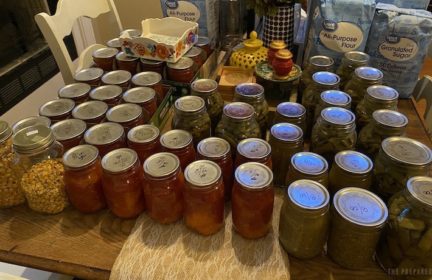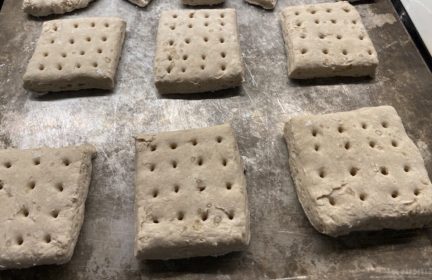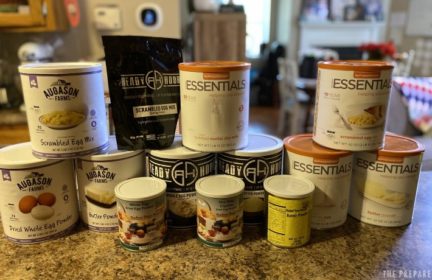Twenty minute dry beans
Dry beans are a really important staple in food storage, but preparing them is really fuel and water intensive. Over time, I’ve been experimenting with making “quick cook” dry beans, based on this blog post: https://seedtopantryschool.com/dehydrating-beans-make-quick-cook-beans/ I’ve noted she’s made some revisions to the instructions I read some years ago. Lots of pictures and explanations in the article.
Anyway, I’m in the midst of a dehydrating frenzy, with the unit going nearly every day, and this week I’m preparing a stash of dry beans for quick cooking. So nice to use the cooking resources when they are plentiful!
The basics: Soak dry beans 8-12 hours, or use the “quick soak” method. Rinse the beans, cover with fresh water, bring to a boil and boil ten minutes. Drain and rinse.
Dehydrating is “tricky” unless you don’t mind bean crumbles. This method prepares the beans so they remain intact, and make nice additions to soups, etc.
Dry the soaked and rinsed beans for about 5 hours at the lowest setting. The article says 95 deg F, my unit doesn’t go lower than 105 and that worked. At higher heat, apparently the quick-drying skin will “curl” the softened inner bean and cause it to split and crumble. The lower temp seems to “set” the inner bean and make it more crumble resistant.
After about 5 hours, I went ahead and cranked the heat up to 125 and dried the pinto beans hard. They are almost 100% intact and virtually look like raw dry beans. This morning I rehydrated by pouring a normal cooking amount of boiling water over them and left them to soak a couple of hours. Then without draining, I brought the beans to a boil, then reduced to simmer. They were al dente within 10 minutes, and mash-able within 20. Tacos and refrieds tonight! I’m about to vacuum seal the rest, and I expect to have “20 minute pinto beans” in storage for years to come.
Currently I’m drying great northern and navy beans. I have a great recipe for bean soup that uses mashed potatoes as a thickener.
-
Comments (7)
-



